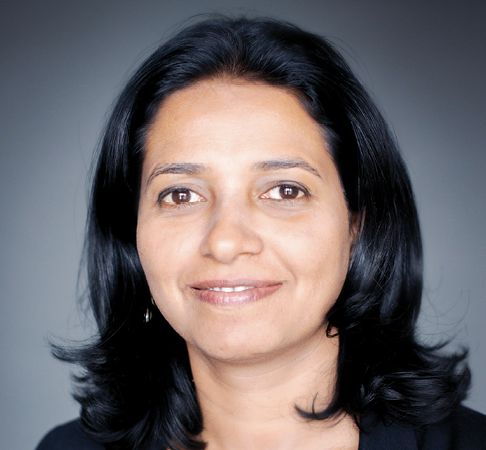Objects in hand, we introduced not just our names, but pieces of our identity. The emotional landscapes mapped in those opening hours set the tone for what was to follow—empathy-first inquiry, collective imagination, and deep, embodied engagement with emerging technologies.
Through breath taking VR experiences—like “Emperor”—we didn’t just learn about stress, aphasia, or neurodivergence; we felt them. We walked inside a mind altered by illness, sat beside a daughter searching for connection, and stood in the shoes of those navigating invisible battles everyday. We didn't merely observe — we experienced.
The sessions stretched both our minds and hearts. Dr. Brennan Spiegel offered a glimpse into the future of medicine—where immersive therapies could treat pain not with pills, but pixels. Cathy Craig showed how XR can enhance brain fitness in athletes and those living with Parkinson’s. Veena Somareddy spotlighted how VR and AI can close equity gaps in neuro-rehabilitation, especially in under-served communities. Her session emphasized that emerging tech must be both innovative and inclusive. Navneet Kaur unpacked the intersection of gender, tech, and health, urging us to build digital tools that empower women and address persistent global disparities in care access and leadership.
Shawn De Freitas took us on a joyful and deeply moving journey in “Panjam: XR, Music Therapy and Design Thinking for Healthy Aging.” Through the culturally rich lens of steel pan drums and a user-centered approach grounded in design thinking, he showed how VR and gamified music can help seniors stay cognitively active and emotionally connected. His work wasn’t just technical—it was a love letter to older adults, and a call to reimagine aging itself.
Tre Azam, founder of MyndPlay, introduced us to brain-computer interfaces in “Training Your Brain in Virtual Reality With MyndB and EEG & Oculus.” His work showed how VR paired with EEG can be used to improve attention, meditation, and emotional regulation—turning self-regulation into an interactive, visual process of empowerment.
In “Make A Virtual Reality Film Using a 360° Camera,” we got hands-on. This practical session gave us the tools to tell immersive stories of our own—combining creativity with technical skill. For many of us, it was the moment we felt the joy of experimenting with narrative and bonding as a cohort. Laughter echoed through the halls as we navigated storytelling in 360°, capturing the world through new lenses—both literally and metaphorically.
The “Hacking the Body” networking event was another highlight, where Fellows shared their work through rapid-fire lightning talks. The space buzzed with ideas, mutual admiration, and the electricity of possibility. It wasn’t just networking—it was knowledge-building in the community.
And in between the powerful conversations and provocations, there was joy. We wandered Oxford’s lush parks, sunlit and blooming. We lingered in museums filled with stories and artefacts that connected past to future. We floated down the river in boats, laughter echoing across the water. We huddled over Persian meals, full of spice and soul, and wandered markets, pockets full of trinkets and memories. We basked in the rare spring sun, letting warmth wash over our jet lag and our long journeys here. And oh, the food—the Rhodes House Café became a haven. Their team whipped up incredible meals with warmth and care, nourishing not just our bodies, but our sense of togetherness. Mealtimes became our own kind of residency session: a place to exchange ideas, share laughs, and deepen bonds.
Throughout the residency, one theme pulsed like a heartbeat: equity. Whether discussing gender, disability, geography, or access, we kept circling back to who gets to heal, who gets to lead, and who gets to imagine the future. As women, as people of color, as advocates for the under-served, many of us have been building bridges where there are none. Here, we found not just tools—but solidarity.
The Emerging Technology Health Residency also planted the seeds for deeper thought leadership. For many of us, this was not just a chance to learn—it was a catalyst to reimagine our own roles as change makers. As we return to our respective sectors—whether health systems, community development, advocacy, or academia—we carry with us a bold question: What could VR unlock in our spaces? From leadership training for women and marginalized groups, to empathetic policy-making, to reshaping how frontline health workers are supported and seen—VR is no longer a distant possibility. It’s a tool for justice, a mirror for systems, and a platform for powerful new narratives. The residency positioned us not just as participants, but as early architects of this evolving ecosystem. It’s clear that this is only the beginning—and that thought leadership from the Global South and historically under-represented voices will be critical to shaping a more inclusive, equitable digital health future.
The Emerging Technology Health Residency wasn’t just about technology. It was about trust, transformation, and the timeless power of human connection. It reminded us that the most radical technology won’t change the world unless it centers the people who have been historically left out of it. We arrived as strangers. We left as collaborators, allies, and visionaries.
Oxford gave us the space to dream. XR gave us the means to build. And now, we return to our communities—carrying not only knowledge, but a renewed sense of possibility.
The future of health is immersive, inclusive, and deeply human. And we are ready.



.jpg)



.png)

